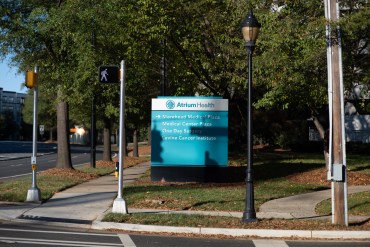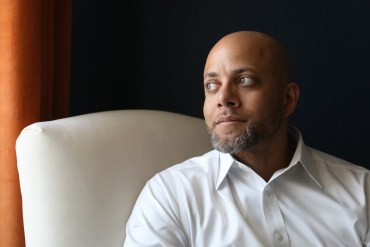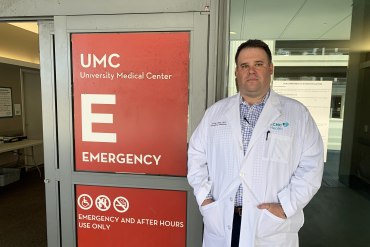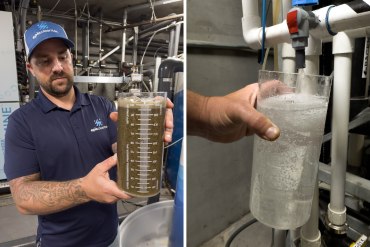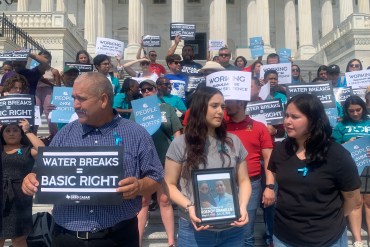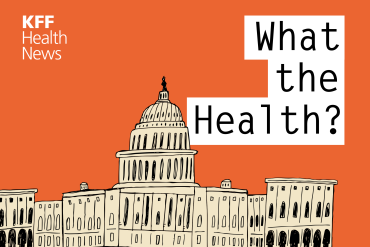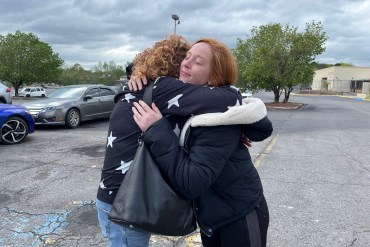Funyuns and Flu Shots? Gas Station Company Ventures Into Urgent Care
A Tulsa-based gas station chain is using its knowledge of how to serve customers and locate shops in easy-to-find spots to enter the urgent care industry, which has doubled in size over the past decade. Experts question how the explosion of convenient clinics will affect care costs and wait times.
Feds Say Hospitals That Redistribute Medicaid Money Violate Law
Federal officials are trying to clamp down on private arrangements among some hospitals to pay themselves back for the Medicaid taxes they’ve paid. State health officials and the influential hospital industry argue that regulators have no jurisdiction over the agreements.
North Carolina Hospitals Have Sued Thousands of Their Patients, a New Report Finds
An analysis of court records by the state treasurer and Duke researchers finds Atrium Health, originally a public hospital system, accounted for almost a third of the legal actions against North Carolina patients over roughly five years.
Parents See Own Health Spiral as Their Kids’ Mental Illnesses Worsen
The day-to-day struggles that parents of kids with mental health conditions must navigate have led to their own crisis: The stress can take a physical toll that disrupts parents’ ability to provide care, say psychologists, researchers, and advocates for families.
Lost Medicaid Health Coverage? Here’s What You Need to Know
Patient advocates are tackling the “overwhelming task” of connecting people with health insurance as millions lose coverage due to the end of pandemic protections on Medicaid eligibility.
What One Lending Company’s Hospital Contracts Reveal About Financing Patient Debt
Within two years of North Carolina’s public university system going into business with AccessOne to finance patients’ payment plans, nearly half of its patients were in loans that charged interest. As federal scrutiny increases on lenders, KFF Health News is sharing that contract and others obtained through public records requests.
How the Texas Trial Changed the Story of Abortion Rights in America
Stark, plaintive testimony from women denied abortion care represents the start of “the 50-year fight to get rid of Dobbs,” one historian says.
As Many American Cities Get Hotter, Health Systems Face Off Against Heatstroke
With millions of Americans suffering under relentless heat waves this summer, more people are seeking medical attention for heat-related illnesses. As temperatures get more extreme, hospitals, fire departments, and ambulance crews are preparing to treat more patients for heat exhaustion and heatstroke.
As Water Reuse Expands, Proponents Battle the ‘Yuck’ Factor
As drought and climate change threaten water supplies, municipalities around the country are ramping up water reuse efforts. But they have to overcome the “yuk” factor.
Black Women Weigh Emerging Risks of ‘Creamy Crack’ Hair Straighteners
Social and economic pressures have long compelled Black girls and women to straighten their hair. But mounting evidence shows chemical straighteners — products with little regulatory oversight — may pose cancer and other health risks.
Be Aware: Someone Could Steal Your Medical Records and Bill You for Their Care
Consumers should know that this type of fraud can happen, whether from a large-scale breach or theft of an individual’s data. The result could be thousands of dollars in medical bills.
To Protect a Mother’s Health: How Abortion Ban Exemptions Play Out in a Post-‘Roe’ World
Florida’s six-week abortion law allows exemptions in cases of rape, incest, and human trafficking, and to save the health or life of the mother. But the recent history of such exemptions in other states suggests that very few women will be able to take advantage of them.
Journalists Explore Shortage of Foster Care Sites and Prevalence of Covid Misinformation
KFF Health News and California Healthline staff made the rounds on national and local media this week to discuss their stories. Here’s a collection of their appearances.
Texan Activists Thirst for a National Heat Standard to Protect Outdoor Workers
As much of the U.S. faces extremely high summer temperatures, Texas’ Republican governor, Greg Abbott, has taken steps that effectively eliminate mandated water breaks for construction workers. In response, protesters from the Lone Star State came to Washington, D.C., to press for federal protections for such outdoor workers.
New Weight Loss Drugs Carry High Price Tags and Lots of Questions for Seniors
Although nearly 40% of Americans 60 and older are obese, Medicare doesn’t cover weight loss medications. Meanwhile, studies haven’t thoroughly examined new drugs’ impact on older adults.
What the Health? From KFF Health News: Let’s Talk About the Weather
It’s been the summer of broken weather records around the world — for heat, rain, and wildfire smoke — advertising the risks of climate change in a big way. But, apparently, it’s not enough to break the logjam in Washington over how to address the growing climate crisis. Meanwhile, in Texas, women who were unable to get care for pregnancy complications took their stories to court, and Congress gears up to — maybe — do something about prescription drug prices. Alice Miranda Ollstein of Politico, Shefali Luthra of The 19th, and Rachel Cohrs of Stat join Julie Rovner, KFF Health News’ chief Washington correspondent, to discuss these issues and more. Also this week, Rovner interviews Meena Seshamani, the top administrator for the federal Medicare program.
A Mom Owed Nearly $102,000 for Hospital Care. Her State Attorney General Said to Pay Up.
As politicians bash privately run hospitals for their aggressive debt collection tactics, consumer advocates say one North Carolina family’s six-figure medical bill is an example of how state attorneys general and state-operated hospitals also can harm patients financially.
Congress Considers Easing Regulations on Air Transport of Donated Organs
A little-noticed provision of sweeping legislation to reauthorize the Federal Aviation Administration would make it easier to fly human organs from donor to recipient.
The Painful Legacy of ‘Law and Order’ Treatment of Addiction in Jail
Efforts to improve addiction care in jails and prisons are underway across the country. But a rural Alabama county with one of the nation’s highest overdose rates shows how change is slow, while law enforcement officials continue to treat addiction as a crime rather than a medical condition.
As Nonprofit Hospitals Reap Big Tax Breaks, States Scrutinize Their Required Charity Spending
Nonprofit hospitals avoid paying taxes if they provide community benefits such as charity care. More states are examining that trade-off, scrutinizing the extent of hospitals’ spending on their communities.






